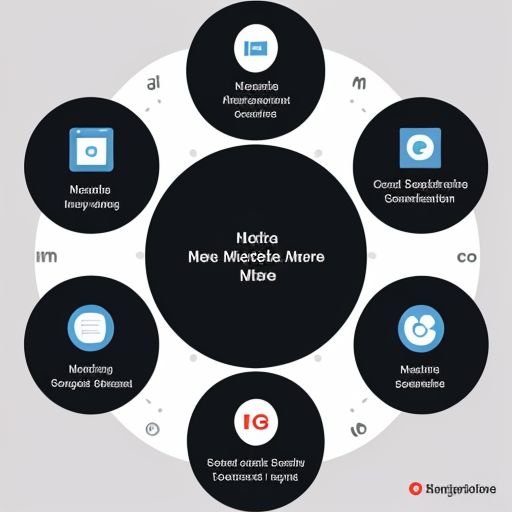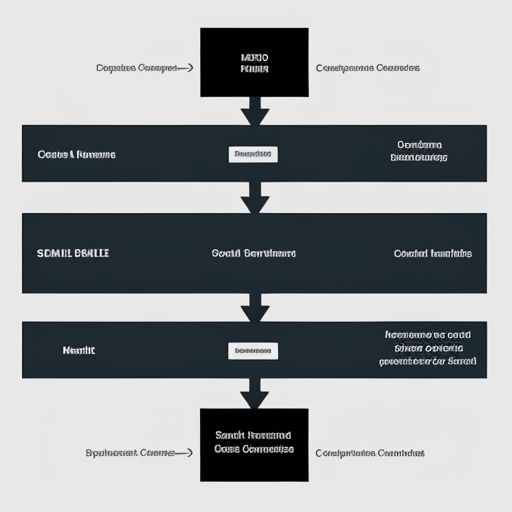In today’s digital age, mobile apps have become indispensable, shaping how we communicate, consume information, and conduct business. The surge in mobile app usage has led to a rise in demand for efficient and intuitive exchange.tailieupentech.com/mobile-app-development-platform/">Mobile App Development Platforms. These platforms provide the tools and resources needed to bring app ideas to life, but with so many options available, choosing the right platform can feel overwhelming.
Understanding Mobile App Development Platforms
A mobile app development platform is a software framework that provides a comprehensive environment for designing, developing, testing, and deploying mobile applications. It simplifies the app creation process by offering a suite of tools and pre-built components, eliminating the need to write code for every single feature.
Think of it like building a house. You could choose to lay every brick, install every window, and wire every electrical outlet yourself. Or, you could opt for a pre-fabricated house kit that provides you with pre-built walls, pre-hung doors, and pre-wired electrical panels, significantly speeding up the construction process.
Mobile app development platforms act as the “pre-fab” kits for app development. They provide:
- Integrated Development Environments (IDEs): A unified interface for coding, debugging, and testing.
- Software Development Kits (SDKs): Libraries of code and tools for accessing device features like the camera, GPS, and push notifications.
- Application Programming Interfaces (APIs): Connectors that allow your app to communicate with other apps and services.
- User Interface (UI) Builders: Drag-and-drop tools for designing the look and feel of your app.
Why Are Mobile App Development Platforms Important?
The importance of choosing the right mobile app development platform cannot be overstated. The right platform can be the difference between launching a successful app and struggling to get your project off the ground. Here’s why:
- Faster Development Cycles: Platforms streamline the development process, enabling you to build and deploy apps faster.
- Reduced Costs: By leveraging pre-built components and tools, platforms minimize the need for extensive coding, saving both time and money.
- Enhanced Collaboration: Many platforms offer collaborative features, allowing teams to work together seamlessly.
- Scalability and Flexibility: Platforms provide the framework to build scalable apps that can adapt to future growth and changing market demands.
Frequently Asked Questions About Mobile App Development Platforms
Navigating the world of mobile app development platforms can be daunting. Here are some answers to common questions:
1. What are the different types of mobile app development platforms?
- Native Platforms: Offer the best performance and access to all device features but require separate development for each platform (iOS, Android). Examples: Swift (iOS), Kotlin (Android).
- Cross-Platform Platforms: Allow you to write code once and deploy it across multiple platforms, saving time and resources. Examples: React Native, Flutter, Xamarin.
- Hybrid Platforms: Combine elements of both native and web technologies. Apps are essentially websites packaged within a native container. Examples: Ionic, Cordova.
2. What factors should I consider when choosing a platform?
- Target Audience: Which operating system (iOS, Android) do your target users primarily use?
- App Complexity: Is your app feature-rich, requiring access to device-specific functionalities?
- Budget: Platforms range in price from free, open-source options to enterprise-level solutions with subscription fees.
- Development Expertise: What programming languages and skills does your team possess?
3. Do I need coding experience to use a mobile app development platform?
Some platforms offer low-code or no-code options, making it easier for individuals with limited coding experience to build apps. However, for more complex applications, coding knowledge is usually required.
Choosing the Right Path
The mobile app development landscape is constantly evolving, with new platforms and technologies emerging regularly. Understanding the key features, benefits, and drawbacks of different mobile app development platforms empowers you to make informed decisions that align with your project goals. Remember, the journey of a thousand apps begins with a single line of code!
We encourage you to share your thoughts and experiences with mobile app development platforms in the comments below. Let’s build a community of knowledge and support for aspiring and seasoned app developers alike!







